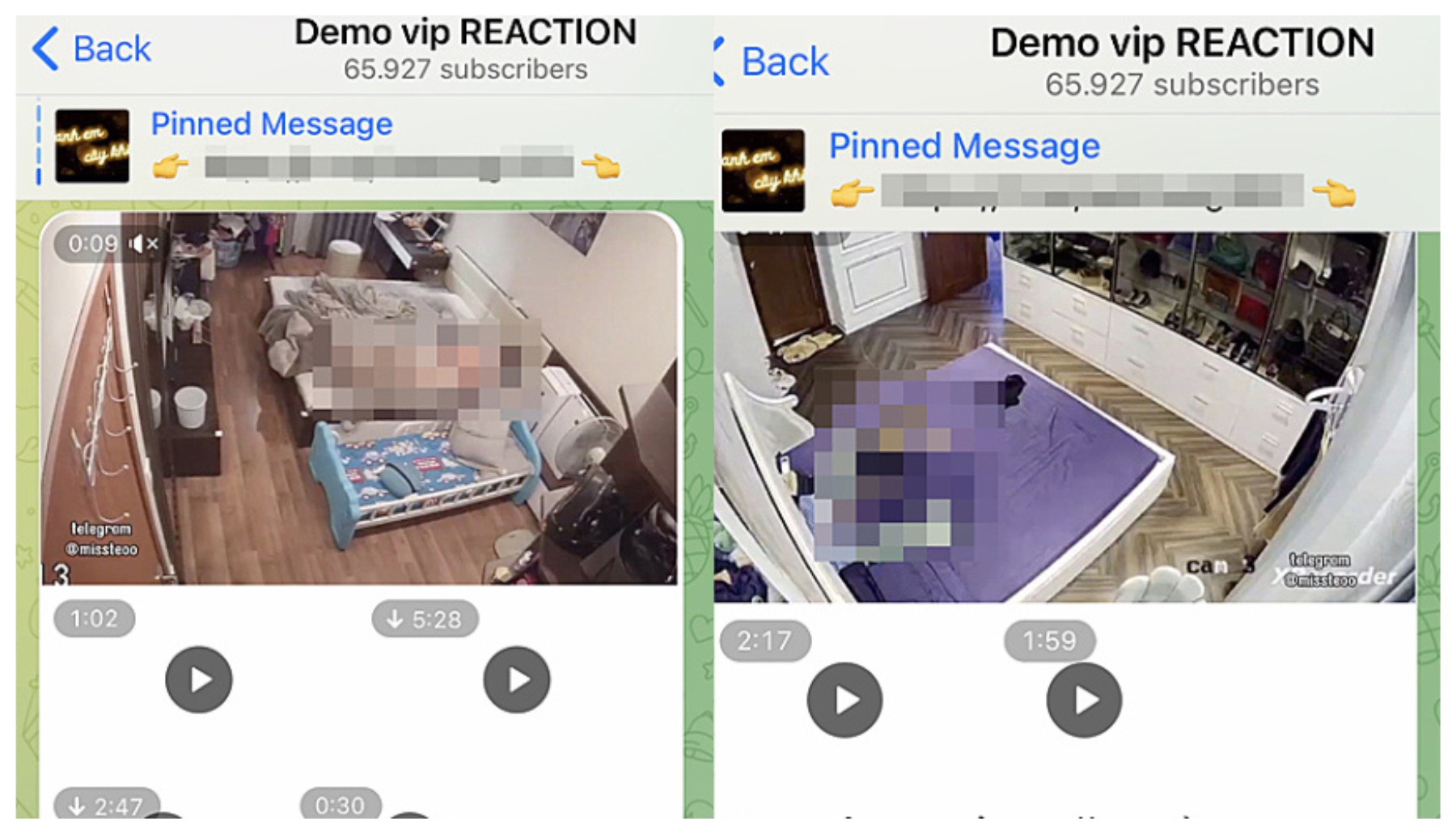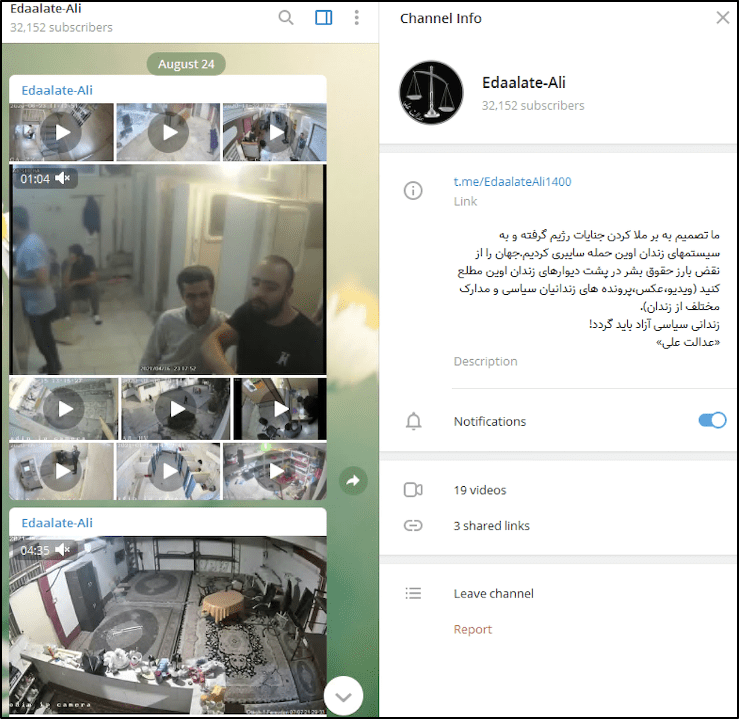Telegram IP Cam Groups: Find & Join NOW!
Are you curious about the hidden corners of the digital world and the evolving landscape of home security and privacy? The accessibility and potential misuse of internet protocol (IP) cameras, especially within the realm of Telegram, are raising critical questions about online security, ethical boundaries, and the vulnerability of personal information.
The proliferation of internet-connected devices, including IP cameras, has created a complex web of opportunities and risks. While these cameras provide valuable security features, they also present potential vulnerabilities. When not properly secured, IP cameras can be accessed remotely by unauthorized individuals, leading to privacy breaches and potential misuse. This is particularly concerning in the context of platforms like Telegram, where groups and channels can facilitate the sharing of sensitive content without adequate safeguards.
One of the primary concerns related to IP cameras is the possibility of hacking. Cybercriminals can exploit vulnerabilities in camera software or weak security settings to gain access to live video feeds and stored recordings. This can lead to the exposure of private moments, such as those within a family setting, or the capture of sensitive information. Furthermore, the compromised footage can be shared online, causing distress and reputational damage to those affected.
Telegram, with its large user base and emphasis on privacy, has become a popular platform for various communities, including those related to IP cameras. Some groups and channels on Telegram offer access to streams from unsecured cameras, sharing information about compromised devices, or even providing tools to hack into them. The anonymity offered by the platform can exacerbate these risks, making it difficult to track and hold accountable those involved in these activities.
The potential for misuse extends beyond hacking. IP cameras can be used for various unethical purposes, including voyeurism, stalking, and the creation of non-consensual intimate content. Compromised camera feeds can be used to monitor individuals' homes, workplaces, or other private spaces, violating their privacy and security. The ability to record and distribute such content adds another layer of complexity and potential harm.
The information from the provided data points toward a worrying trend: the intersection of IP camera technology and potential privacy breaches on platforms like Telegram. Various groups and channels are advertised, offering access to "free QR IP cams," "family selfie and cam" content, and updates related to "family 4k server" information. The mention of "hacked ip cameras" and the dissemination of potentially sensitive content on platforms such as pornmega.com raises ethical and legal red flags.
The rapid growth of IP cameras in the market coincides with advancements in hacking techniques and data-sharing platforms. One of the core issues is securing IP cameras. Many users are unaware of the vulnerabilities that can lead to their devices being compromised. Default passwords, outdated firmware, and inadequate network security can all create easy access points for malicious actors. The use of QR codes, which can simplify initial setup, can also inadvertently create security gaps if not managed cautiously.
The availability of tools and tutorials to hack IP cameras further accelerates this trend. These resources, often found on the dark web or in less regulated online forums, can equip individuals with the knowledge and means to exploit vulnerabilities. This knowledge can then be used to gain unauthorized access to camera feeds, leading to privacy violations and potential legal ramifications. The data provided includes instances of "hacked ip cameras" being mentioned, indicating the real threat posed by these tools.
Telegram's role in this ecosystem is a double-edged sword. On one hand, the platform emphasizes privacy and end-to-end encryption, which can protect user communications. On the other hand, the same privacy features can also provide a shield for malicious actors who distribute hacked camera feeds and related information. The lack of stringent content moderation and the potential for anonymous accounts can make it difficult to identify and remove problematic content, contributing to the spread of privacy breaches.
The data repeatedly mentions the availability of "family selfie and cam" content. This raises serious concerns about the exploitation and abuse of individuals, particularly children. Content of this nature is often non-consensual and can cause significant emotional and psychological harm to those involved. The prevalence of such content underscores the urgent need for stricter measures to prevent its creation, distribution, and consumption.
The use of the phrase "family 4k server updates" combined with the imagery of emojis such as a "fire" and a "battery" is suggestive of a trend where the platform is used for distributing potentially illegal content. The language used to promote these activities "right away," "enjoy" normalize and encourage participation.
The accessibility of these groups and channels on Telegram poses a significant challenge to privacy and security. The ease of joining and sharing content, combined with the anonymity offered by the platform, allows malicious actors to operate with relative impunity. Law enforcement agencies and cybersecurity professionals must address this issue. This includes tracking down the sources of these streams and holding the perpetrators accountable for their actions.
The information provided also reveals a network of resources and tools, which further complicates the matter. There are references to bots that interface with IP cameras via Telegram, which could automate the process of gaining access to streams. This raises concerns about the potential for widespread abuse. There is a need to develop countermeasures to protect against these sophisticated attacks.
The data mentions "camaras seguridad" and "grupo de camaras de seguridad." This indicates an interest in security cameras. However, the context suggests these groups may be used to share or discuss compromising footage. It's necessary to ensure that these discussions adhere to ethical and legal standards.
The statement, "Joining ip camera telegram groups and channels is a great way to stay connected with the latest developments in security technology," highlights the double-edged nature of these platforms. While they can provide a forum for discussing legitimate security practices, they can also facilitate illicit activities. A critical balance must be achieved in the context of online security discussions.
The presence of foreign language content, like "Ayuda y soporte cmaras ip sumpple xiaomi dahua hikvision fiscal," indicates that this problem transcends geographical boundaries. This emphasizes the global implications of IP camera hacking and privacy breaches. International cooperation is essential for addressing these complex issues.
In conclusion, the provided data paints a concerning picture of how IP cameras can be exploited on platforms like Telegram. The risks include privacy breaches, ethical violations, and the potential for illegal activities. This should be a wake-up call to users and developers. The need to prioritize security, promote responsible usage, and to ensure the safety of our digital spaces is now more important than ever.



Detail Author:
- Name : Mrs. Lenore King
- Email : bruen.vicente@gmail.com
- Birthdate : 1992-06-02
- Address : 96962 Green Spurs South Thalia, HI 88874
- Phone : 1-325-276-3813
- Company : Bergnaum-Haag
- Job : Truck Driver
- Bio : Beatae sunt corrupti fugit quos. Enim asperiores maxime a explicabo delectus est quas. Rem pariatur veniam officia ut consequatur saepe voluptatem sed.